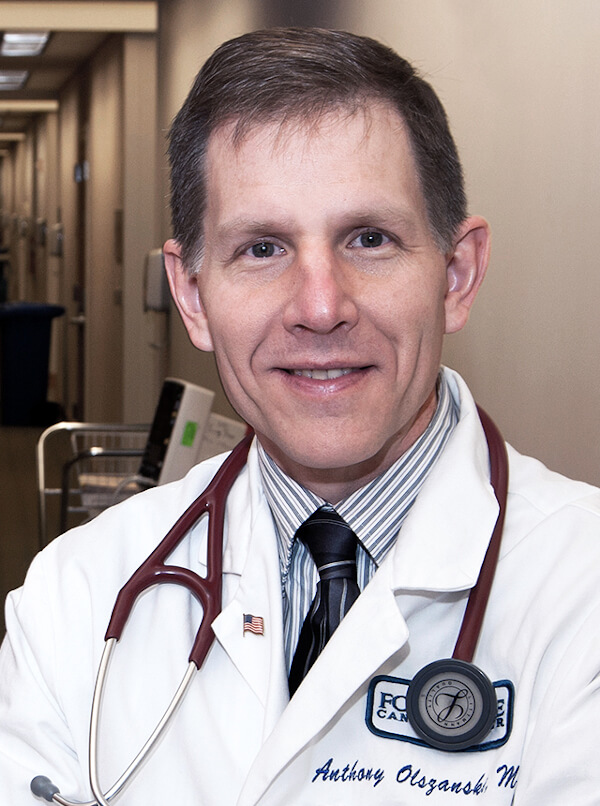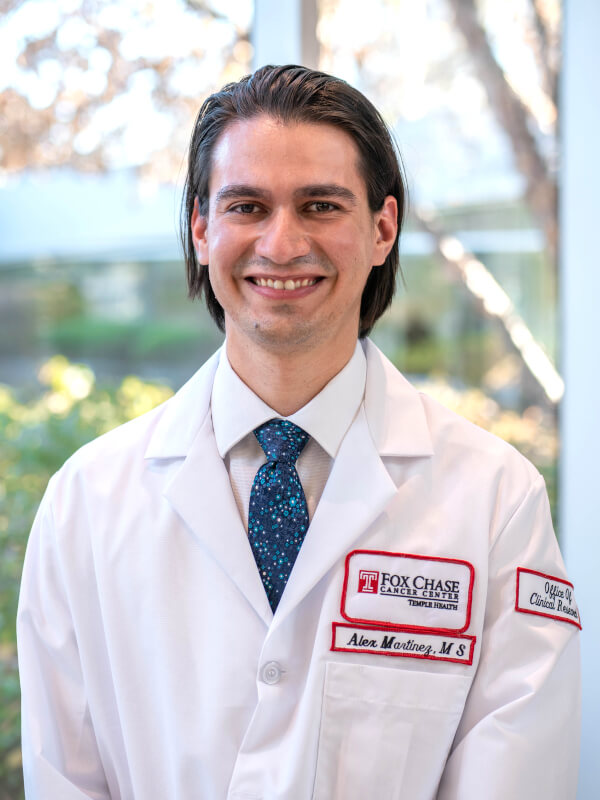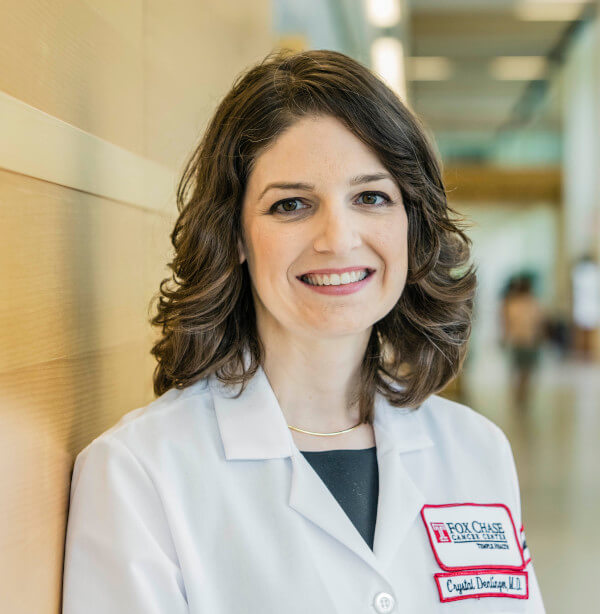The information presented in Oncology News Connection (ONC) eNewsletter is provided for physicians and other healthcare providers only and should not be shared with any current or future patients. If you are not a healthcare provider, we welcome you to sign up for Thrive eNewsletter to receive the latest information and blog highlights from Fox Chase Cancer Center.
When the COVID-19 pandemic hit the United States in the spring of 2020, the researchers at Fox Chase Cancer Center did not hesitate to make necessary decisions to preserve the clinical trials program and the safety of our patients.

“We are very cognizant that the Phase I clinical trial program we have at Fox Chase is critically important for our patients,” said Anthony J. Olszanski, MD, RPh, Director of the Early Clinical Drug Development Phase I Program at Fox Chase. “Patients considering a Phase I clinical trial have been through many lines of treatment and know that their cancer is going to progress, regardless of the coronavirus.”
In order to keep trials open and accruing at the beginning of the pandemic, Fox Chase leadership had to think through the logistics of having staff available on campus. This included pharmacy staff, protocol support lab members, clinical research unit nurses, clinical research coordinators, and data managers. To be able to do so, it was necessary for Fox Chase to remain a COVID-19-free facility. This meant restricting visitors, screening everyone entering Fox Chase’s facilities, testing certain patients for COVID-19, and transferring any positive patients to the neighboring Temple University Hospital Jeanes Campus for further care.

“Through this effort, we were able to work within our health system to change gears and continue to see clinical trial patients,” said Alejandro Martinez, MS, Clinical Research Team Lead at Fox Chase.
Additionally, Fox Chase’s research staff began to work with sponsors to limit the number of trial vendors that came on-site to monitor trial data.
“Before the pandemic, on any given day, we had about five external visitors on-site to look through research records and make sure we were following protocols,” Martinez said. “We had to rethink these visits at the start of the pandemic, and we worked to develop a remote monitoring policy.”
Leadership in the clinical trials program also began to assess how they could limit patient visits in general. Many patients were not able or willing to cross state lines to come to Fox Chase during the height of the pandemic, and this required creative solutions (such as telehealth visits for routine assessments and partnering with community oncology practices and pharmacies). When patients did come into the Center, they were unable to bring a caregiver, which had a strong impact on morale. To combat this, clinicians encouraged video and phone calls during appointments and treatments.
“On the back end, we had to work with institutional review boards and our quality assurance group to make sure we were still meeting the guidelines we are held to when doing clinical research studies,” Martinez said.
The safety of staff was also a concern for the program, specifically the clinical research data specialists.
“There is a component of that job that requires them to be on-site, and we worked diligently to maintain social distancing and rearrange schedules in order to keep our staff safe,” Martinez said.
According to Dr. Olszanski, all of these efforts paid off: Phase I clinical trial accrual at Fox Chase since June is greater than that of the same period in 2019.
“I don’t want to experience a pandemic again, but this one has allowed us to break down barriers related to trials that we were tightly tied to,” Dr. Olszanski said. “Clinical trial sponsors were very rigid in the way they conducted trials, for good reason, and the FDA was too. What we are seeing during the pandemic is that there is some room for compromise.”

Moving forward, Crystal S. Denlinger, MD, FACP, Deputy Director of the Early Clinical Drug Development Phase I Program, hopes that the increased utilization of telehealth and increased engagement with community oncology partners will remain a part of future trials.
“One of the limitations for some trial participants is the distance that they have to travel for what may be a routine assessment,” Dr. Denlinger said. “If we can partner with community providers and laboratory or radiology resources, in combination with telehealth, even after the pandemic, that could really extend accessibility and the reach of our clinical research.”
For more information about clinical trials at Fox Chase, please call 215-214-1515 or go to foxchase.org/clinicaltrials.
Things to Know About Fox Chase’s Clinical Trials Program During the COVID-19 Pandemic
- Patient and staff safety should remain a top priority as clinical trial enrollment continues.
- On-site rules and protocols may need to be adapted to ensure patient safety.
- Limitations of on-site visits do not have to be detrimental to trial enrollment.
- Clinical trial protocols may be adapted to allow for increased collaboration with community oncology partners.
- Telemedicine plays an important role in allowing patients to continue in clinical trials while minimizing possible exposure.